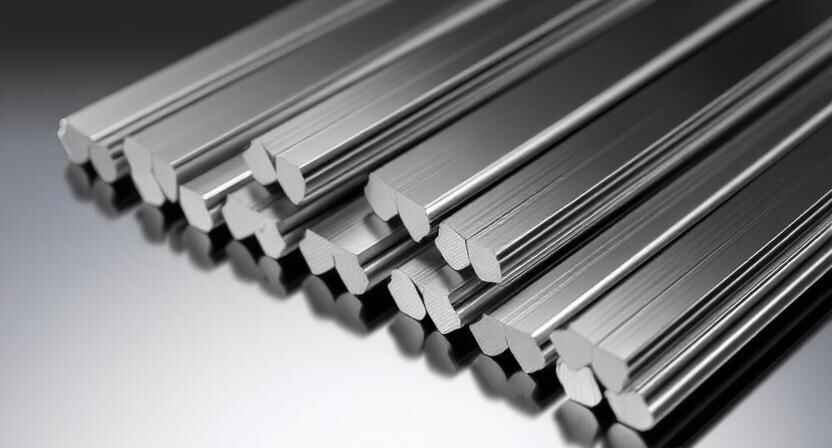Stainless Steel 416 Properties
Ferrobend comes to materials that offer both strength and versatility, few options can compete with stainless steel 416. Widely used across industries like aerospace, automotive, manufacturing, and more, 416 stainless steel is known for its exceptional corrosion resistance and excellent machinability. Ferrobend, a leading manufacturer of high-quality stainless steel products, provides this material with unmatched precision and reliability. In this article, we’ll dive deep into the features, benefits, applications, and why Ferrobend’s Stainless Steel 416 is the best choice for your next project.
Stainless steel 416 is a martensitic grade of stainless steel that contains a higher amount of sulfur, which enhances its machinability. This alloy primarily consists of iron, chromium (12–14%), and a small amount of sulfur (0.15–0.40%), making it ideal for applications that demand high levels of hardness, toughness, and corrosion resistance. Stainless Steel 416 is often considered a modified version of 410 stainless steel. The addition of sulfur improves the material’s machinability, making it easier to shape and cut without compromising its corrosion resistance. Unlike austenitic stainless steels like 304 or 316, 416 stainless steel is magnetic, which adds to its appeal in various applications.
Ferrobend uses state-of-the-art technology and industry-best practices to produce stainless steel 416. The company is committed to quality control at every step of the manufacturing process, ensuring that each product meets the highest standards for consistency and performance. Whether you need raw material or a finished product, Ferrobend delivers with precision. At Ferrobend, customer satisfaction is paramount. The company provides customized solutions to meet specific needs, whether you’re looking for stainless steel 416 in specific dimensions, finishes, or treatments. This flexibility ensures that your exact requirements are met, whether you need bulk orders or a single, specialized piece.
Ferrobend strives to offer the best quality products at competitive prices. By optimizing its supply chain and production processes, Ferrobend ensures that you can access premium stainless steel 416 materials at a cost-effective rate, helping you maintain budget-friendly projects without sacrificing quality. Ferrobend’s team of experts is always available to guide you through the specifications, grades, and potential applications of stainless steel 416. If you're uncertain about which material best suits your needs, Ferrobend provides knowledgeable support and advice to help you make the right choice.
Chemical Properties:
| Elements | Cr | Ni | C | Si | Mn | P | S | Mo | Fe |
|---|---|---|---|---|---|---|---|---|---|
| % | min: 17.0 ,max:19.0 | min: 8.0 ,max: 10.0 | 0.15 max | 1.00 max | 2.0 max | 0.20 max | 0.15 min | 0.75 | balance |
Mechanical Properties:
| Tensile Strength ksi (min.) | Yield Strength 0.2% Offset ksi (min.) | Elongation - % in 50 mm (min.) | Hardness (Brinell) MAX | Hardness (Rockwell B) MAX |
|---|---|---|---|---|
| 75 | 30 | 35 | 228 | - |
Physical Properties:
| Denstiy lbm/in3 | Coefficient of Thermal Expansion (min/in)-°F | Electrical Resistivity mW-in | Thermal Conductivity BTU/hr-ft-°F | Melting Range | |||||||
|---|---|---|---|---|---|---|---|---|---|---|---|
| at 68 °F | at 68 – 212°F | at 68 – 932°F | at 68 – 1450°F | at 68°F | at 212°F | at 392°F | at 752°F | at 1112°F | at 1472°F | at 68 – 212°F | - |
| 0.29 | 9.2 | 10.4 | 10.9 | 28.3 | 30.7 | 33.8 | 39.4 | 43.7 | 47.6 | 113.2 | 2552°F |
Equivalent Grades and Designations:
| SAE / AISI | 416 |
| UNS | S41600 |
| EN Material Number | 1.4165 |
| EN Material Name | X8CrNiS18-9 |
| DIN Material Name | X8CrNiS18-9 |
| JIS | SUS 416 |
| BS | 202S 21 En58M |
Heat Resistance:
- Good oxidation resistance at temperatures up to 1700oF (927 oC)
- Continuous use at temperatures above 1400oF (760oC) is not usually recommended due to carbide precipitation which can lead to irregular scaling
- Does not have a low carbon content so it is also vulnerable to sensitization
Welding Characteristics:
- Not generally recommended, but may be welded with some difficulty
- May be welded with Alloy 310 electrodes
- Should be annealed after welding to re-dissolve precipitated carbides
Machinability:
- High machining rates can be obtained in the annealed condition with hardness in the range of 200 to 240 Brinell
- Will work harden; therefore, it should be machined at reduced surface feet per minute and heavier feeds to prevent glazing at the tool interface.
Applications:
- Nuts and bolts
- Aircraft fittings
- Gears
- Screws
- Shafts
- Electrical switchgear components
- Bushings
